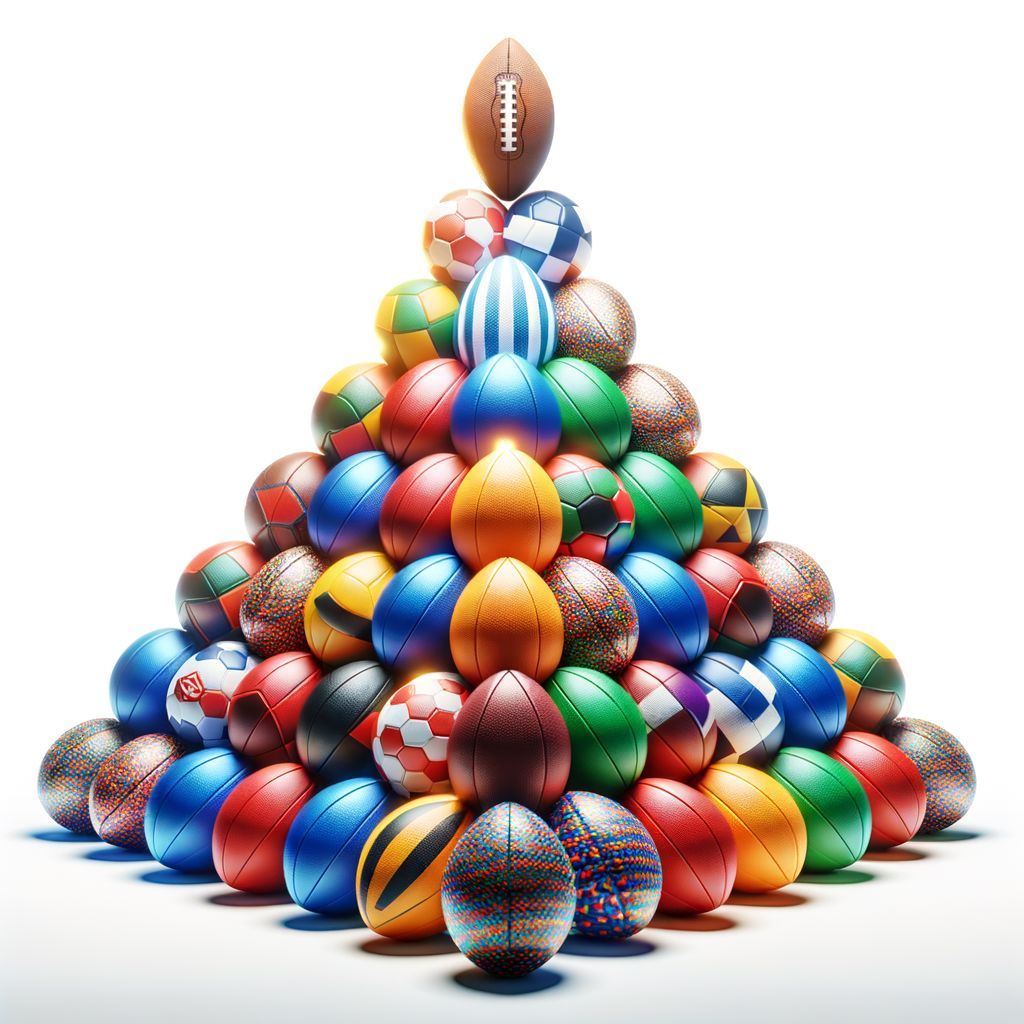

Image by DALL·E Pic: Midjourney
Editors' Note: Many Fast News images are stylised illustrations generated by Dall-E. Photorealism is not intended. View as early and evolving AI art!

Brands miss out on gold,
Short-term gains blind the long view,
Value lies untold.

Top brands missing out on US$3.5 trillion in value according to Interbrand's 25-year analysis
Interbrand, Omnicom's global brand consultancy, has published its annual 'Best Global Brands' ranking, revealing that the world's 100 most valuable brands have missed out on $US3.5 trillion of value creation since 2000 due to a focus on performance marketing over long-term brand investment. For this last year, this equates to US$200 billion in lost revenue.
The report, which this year marks it quart-century, brings together 25 years of Interbrand's brand valuation analysis, with the cumulative value of the world's most valuable brands having increased 3.4 times since Interbrand first published its ranking, from $US988 billion to $US3.4 trillion.
"If these brands had been treated and managed as strategic growth assets, then this table could be worth as much as $US6.9T. The growth we see hides a staggering missed opportunity," said Global CEO of Interbrand, Gonzalo Brujó.
CEO of Interbrand Australia, Nathan Birch, said: "I’m delighted to see for the first time an Australian brand mentioned in the report – Who Gives a Crap – fast becoming a global brand icon, but our report highlights a concerning trend: an over-reliance on short-term performance tactics has cost the world's most valuable brands $US3.5 trillion in cumulative brand value since we started our study. This 'efficiency tax' is a wake-up call for Australian businesses. While operational efficiency is important, it shouldn't come at the expense of building strong, desire-driven brands that can drive exponential growth across multiple arenas.
“Brands are moving from 'finding customers for your competencies' to 'building competencies around your customers'. It’s allowing brands to expand beyond traditional category boundaries and tap into new arenas of opportunity.
Interbrand's analysis shows that for every point increase in the combined Role of Brand and Brand Strength, businesses can expect a 2.3x return on their stock price.
"This underscores the critical importance of the brand as a competitive moat and long-term growth driver. Australian brands need to ask themselves that investing in brand is not just about making gloriously creative TV ads and performance marketing; it's about creating sustainable business value," said Birch.
This year's 'Best Global Brands' ranking has seen significant brand value increases for Ferrari and YouTube, while Apple, the most valuable brand, has seen its brand value drop for the first time in over two decades by 3%.
"While others rushed into AI, Apple took a more deliberate path to ensure its AI releases matched its values. This slower-moving act of leadership has put long-term trust ahead of short-term revenue gains. Following these brand moves, Apple’s stock has moved up 20% YTD and we anticipate that Apple’s value will increase in the 2025 rankings," said Global Director of Brand Economics, Interbrand, Greg Silverman.
Meanwhile, new entrants to the ranking include Nvidia (#36), Pandora (#91), Range Rover (#96), and Jordan (#99), and Uber (#78) and LG (#97) have re-entered the ranking.
The automotive sector dominated the top 100 brands of 2024, with 14 entries, including three in the top 10 - Toyota (#6), Mercedes-Benz (#8) and BMW (#10). Toyota, Kia (#86), and Hyundai (#30) all achieved double digit growth, while Tesla (#12) experienced one of the year's most significant declines in brand value, dropping 9%.
Luxury brands have continued an upward trajectory, with Ferrari capturing this year's spot as the top-rising brand with 21% brand value growth. Louis Vuitton lifted three spots to 11th place, and Hermès (#22) and Prada (#83) saw respective brand value growth of 15% and 14%.
Among financial brands, J.P.Morgan (#25), American Express (#27), Allianz (#29), VISA (#32), Mastercard (#39), PayPal (#40), and AXA (#48) were in the top 50. Allianz and Visa had the highest growth in brand value of that group, both lifting 13% to a respective US$23.5 billion and US$21.1 billion in brand value.
Commenting on Allianz performance, Australia Chief General Manager of Consumer, Shez Ford, said: "We are delighted to be recognized globally as the World’s #1 Insurance Brand and be ranked in the top 3 global financial brands. We are particularly proud of the contribution the Australian team has made to this achievement, including our significant brand work earlier this year to support our Olympics and Paralympic partnership celebrating the joy of our country’s best athletes."
Over the past 25 years, Interbrand observed a significant shift in the ways company boardrooms approach growth. According to the report, C-Suites are now prioritizing lower total investments with more immediate returns and strategies that integrate long-term brand equity with short-term revenue gains are becoming the gold standard – but are still surprisingly rare.
"Performance tools, capabilities and systems have evolved over the past quarter century. As these tools shift, so do the pressures and expectations placed on brand and marketing leaders. Today, CMOs are expected to deliver greater revenue returns, in shorter time frames, for a lower investment," said Brujó.
"Many of the world’s most valuable brands are missing out on significant earning potential by over-investing in short-term gains. Our analysis shows these gains, when tied predominantly to short-term tactics, can undermine a company’s mid- to long-term revenue potential.”
Partner Content from Salesforce
The AI Imperative: It’s Time for Financial Services to Embrace AI
How Trusted AI Opens Up New Possibilities for Customer Service









